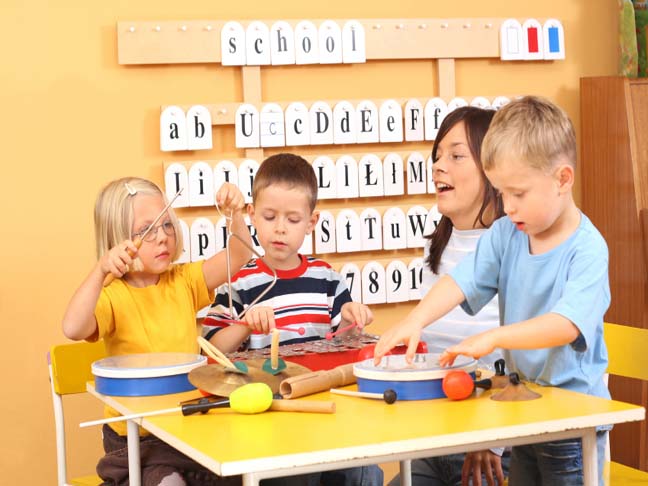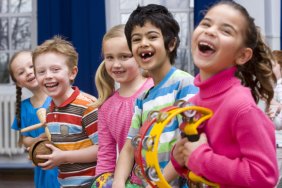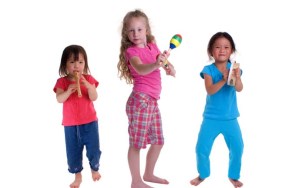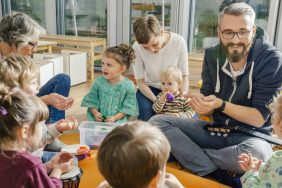With budget cuts throughout the country, many music programs have been discontinued. Unless your child goes to a specialized school, music is probably not part of their daily classroom experience.
What are we losing by having less music in our children’s lives rather than more?
As early as the 19th century, the size of the brain was thought to be positively affected by musical exposure. And the earlier this happens, the better. Just as all children are born with the potential to learn to speak and understand their native language, all children are born with the potential to learn to perform and understand their culture’s music. The youngest infant is wired to receive music.
There is a proven link between music training and spatial reasoning. Physicist Gordon Shaw, Ph.D., has published studies showing that children who listened to Mozart and studied piano were far ahead of their peers in math. Perhaps that’s as good a reason as any for keeping elementary music programs.
Carolyn Gilbreath, a consultant with the Oakland Intermediate School District in Michigan, has studied the concept of “superlearning.” She said one theory is that the right music “sinks the body into alpha (brain) waves.”
Some other findings:
- Infants can distinguish differences in pitch, melody, and rhythm from very early on. In fact, they even seem to recognize music they were exposed to repeatedly in the womb.
- Preschoolers were able to learn body parts better in a lesson that used music and dance as opposed to conventional lessons.
- Students who received daily music training for seven months had higher reading scores at the end than did a control group. A year later, their scores were still higher than the control groups.
And then there is the inclusion of music education for its own sake. Music is a way of knowing.
The very important idea that music is its own intelligence is often overlooked. According to Harvard psychologist Howard Gardner, it is equal in importance to mathematical, linguistic, spatial, kinesthetic, interpersonal, and intrapersonal intelligence.
Perhaps, with increased awareness and understanding, concerned parents will have an effect on the inclusion of music programs in all levels of education. It’s worth the fight.








